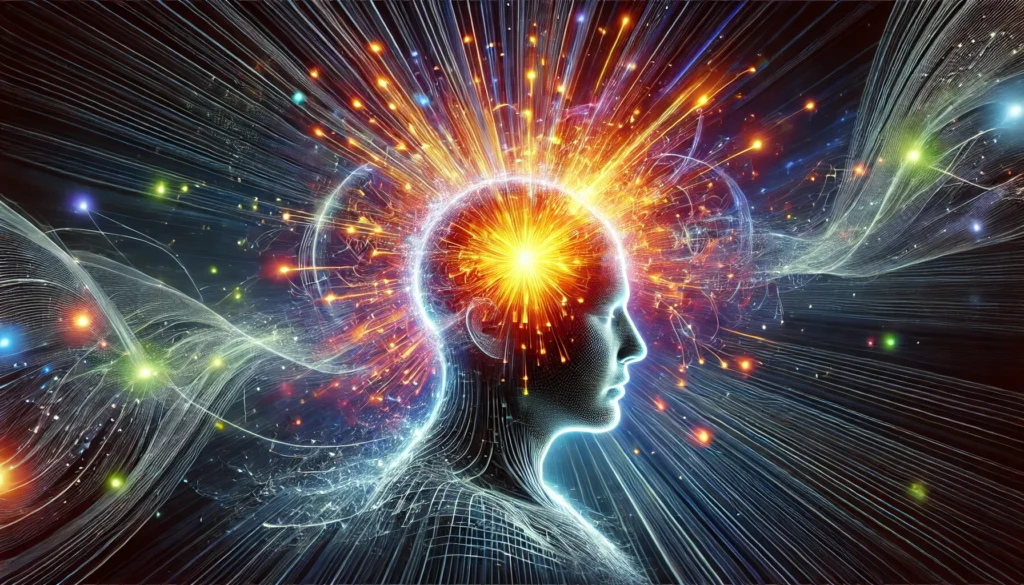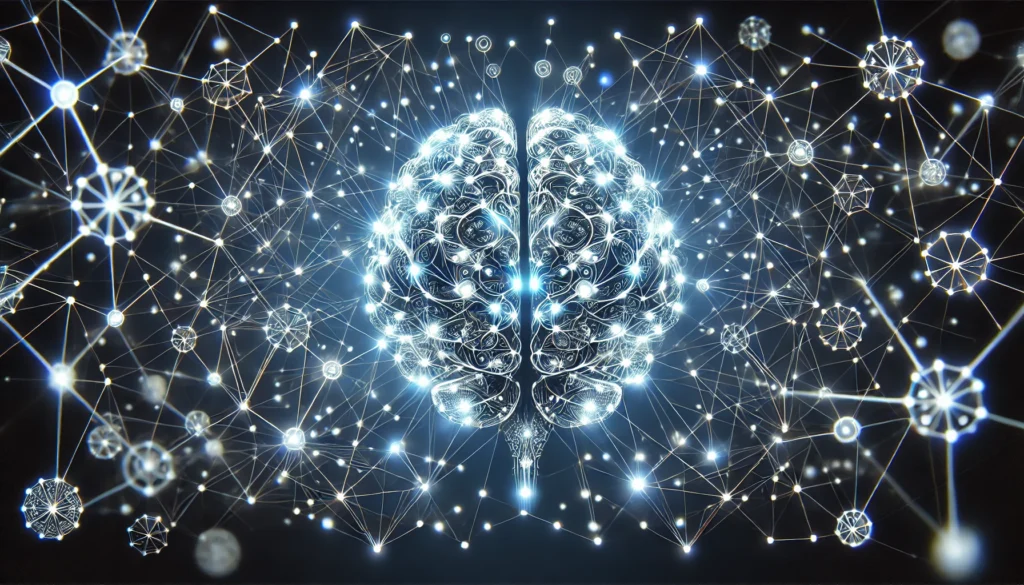The human brain is an astonishing organ, a complex network of neurons that governs our thoughts, emotions, and actions. Yet, popular lore suggests that we only use a fraction of its capacity. Is it possible to tap into more of our brain’s potential? Let’s delve into the science behind this idea and explore practical strategies to enhance mental clarity and cognitive function.
You may also like: Top Herbs to Enhance Your Focus
Understanding the Myth: “We Only Use 10% of Our Brain”
The notion that we use only 10% of our brain’s capacity is pervasive, but it is a myth. Neurologists affirm that we utilize virtually every part of the brain, and most of the brain is active nearly all the time. However, that doesn’t mean we can’t optimize its performance.
Debunking the 10% Myth
The 10% myth likely originated from misunderstandings or misinterpretations of neurological research. Some early studies might have suggested that only a small portion of the brain was active at any given time, but this was more a reflection of the limitations of early technology. Modern imaging techniques show that even during rest, many regions of the brain are active, contributing to what is known as the brain’s “default mode network.”
The Role of Brain Imaging
Advancements in brain imaging technology, such as functional MRI and PET scans, have allowed scientists to observe the brain in unprecedented detail. These technologies have debunked the 10% myth by showing widespread brain activity even during simple tasks. Brain imaging has also revealed that no single area of the brain is ever completely inactive; rather, different tasks engage different networks within the brain.
Implications of Full Brain Utilization
Understanding that we use our entire brain highlights the importance of each region and its contribution to overall cognitive function. It suggests that rather than focusing on “activating” unused parts, we should aim to enhance the efficiency and connectivity of the networks we already use. This approach can lead to better problem-solving skills, improved emotional regulation, and more effective learning strategies.
The Science of Neuroplasticity
Neuroplasticity, the brain’s ability to reorganize itself by forming new neural connections, is a key to unlocking enhanced cognitive functions. This adaptability enables learning and memory formation. By engaging in activities that challenge the brain, you can stimulate neuroplasticity and improve mental agility.
Mechanisms Behind Neuroplasticity
Neuroplasticity involves several mechanisms, including synaptic plasticity, which refers to the strengthening or weakening of synapses based on activity, and neurogenesis, the birth of new neurons. These processes are influenced by factors such as experience, learning, and environmental changes. Understanding these mechanisms can help in developing strategies to enhance neuroplasticity.
Activities That Promote Neuroplasticity
Certain activities are particularly effective at promoting neuroplasticity. These include learning new skills, engaging in complex problem-solving, and even social interactions. Activities that require multitasking or challenge the brain in novel ways can lead to the formation of new neural pathways, enhancing cognitive flexibility and resilience.
The Impact of Age on Neuroplasticity
While neuroplasticity is most pronounced during childhood and adolescence, it continues throughout life. However, the rate of neuroplastic changes can decline with age. This doesn’t mean older adults can’t benefit from neuroplasticity; rather, they may need more deliberate and sustained engagement in cognitive activities to achieve similar results.
Strategies to Enhance Mental Clarity
Enhancing mental clarity involves sharpening focus, increasing concentration, and reducing cognitive fog. Here are some effective strategies:
Mindfulness and Meditation
Mindfulness practices have been shown to improve attention, memory, and emotional regulation. Meditation, in particular, enhances gamma wave activity in the brain, which is linked to heightened awareness and attention.
Types of Meditation
There are various forms of meditation, each with different benefits. Mindfulness meditation focuses on present-moment awareness, while transcendental meditation involves the use of mantras to reach a state of relaxed awareness. Guided visualization can also help in stress reduction and improving focus, offering diverse paths to mental clarity.
Benefits of Regular Practice
Regular meditation practice can lead to structural changes in the brain, such as increased gray matter density in areas associated with learning and memory. It can also reduce activity in the brain’s “me” center, leading to decreased stress and anxiety. These changes contribute to improved concentration and emotional regulation, essential components of mental clarity.
Integrating Mindfulness into Daily Life
Incorporating mindfulness into daily routines doesn’t require extensive time commitments. Simple practices such as mindful breathing, body scans, or mindful walking can be integrated into daily activities. These practices help maintain focus and reduce cognitive overload, promoting sustained mental clarity.
Physical Exercise
Regular physical activity increases blood flow to the brain and supports the growth of new neurons, a process known as neurogenesis. Exercises like aerobic workouts, yoga, and tai chi have been associated with improved cognitive function and mental clarity.

The Connection Between Exercise and Brain Health
Exercise stimulates the release of growth factors that affect the health of brain cells and the growth of new blood vessels in the brain. It also increases the size of the hippocampus, the part of the brain involved in memory and learning. Understanding these connections underscores the importance of physical activity for cognitive health.
Types of Exercise for Cognitive Benefits
Different exercises offer varying cognitive benefits. Aerobic activities like running or cycling improve overall brain function and memory. In contrast, resistance training can enhance executive function and processing speed. Even activities like dance, which combine physical movement with coordination and rhythm, can boost cognitive flexibility.
Creating an Exercise Routine
Creating a balanced exercise routine that includes cardiovascular, strength, and flexibility training can maximize cognitive benefits. It’s important to find activities that are enjoyable and sustainable. Even short bouts of physical activity throughout the day can contribute to improved mental clarity and cognitive function.
Nutrition and Brain Health
A brain-healthy diet rich in omega-3 fatty acids, antioxidants, and essential vitamins can support cognitive function. Foods like fatty fish, blueberries, nuts, and leafy greens are known to boost brain health.
Key Nutrients for Brain Health
Certain nutrients play critical roles in maintaining brain health. Omega-3 fatty acids, found in fish like salmon, are crucial for building brain and nerve cells. Antioxidants from fruits and vegetables combat oxidative stress, while vitamins like B6, B12, and folate support brain metabolism and cognitive function.
The Role of Gut Health
Emerging research highlights the connection between gut health and brain function. A balanced gut microbiome can influence mood, cognition, and mental health. Probiotic-rich foods such as yogurt, kefir, and fermented vegetables can support gut health, indirectly benefiting the brain.
Planning a Brain-Healthy Diet
Planning a brain-healthy diet involves incorporating a variety of nutrient-dense foods. Emphasize whole foods, minimize processed foods, and maintain hydration. Regularly consuming foods like nuts, seeds, whole grains, and lean proteins can provide the nutrients needed for optimal brain function.
Quality Sleep
Sleep is crucial for cognitive function and memory consolidation. Ensuring you get sufficient, quality sleep can significantly enhance your mental clarity and overall brain performance.
Understanding Sleep Cycles
Sleep consists of multiple cycles, including REM and non-REM stages, each playing a role in brain health. REM sleep is crucial for emotional regulation and memory consolidation, while non-REM sleep aids in physical restoration and detoxification of the brain.
Impact of Sleep Deprivation
Chronic sleep deprivation can lead to cognitive decline, impaired decision-making, and increased stress. It affects the brain’s ability to clear toxins, which can exacerbate mental fog and reduce clarity. Prioritizing sleep can mitigate these effects and enhance cognitive performance.
Strategies for Improving Sleep Quality
Improving sleep quality involves creating a conducive sleep environment and establishing a consistent sleep routine. Techniques such as limiting screen time before bed, maintaining a cool, dark room, and practicing relaxation techniques can promote restful sleep and enhance mental clarity.
How to Access More of Your Brain
To access more of your brain’s potential, consider incorporating the following techniques into your daily routine:
Cognitive Training
Brain training exercises, such as puzzles, memory games, and problem-solving tasks, can improve cognitive flexibility and executive function. These activities encourage the brain to form new connections and pathways.
The Science Behind Cognitive Training
Cognitive training involves targeted exercises designed to improve specific brain functions. Research shows that such training can lead to measurable changes in brain structure and function, enhancing areas like working memory, attention, and processing speed.
Types of Cognitive Training Exercises
There is a wide range of cognitive training exercises available, from digital apps to traditional puzzles and board games. Activities like Sudoku, chess, or memory recall exercises can sharpen mental skills and improve cognitive resilience.
Making Cognitive Training Part of Your Routine
Consistency is key when it comes to cognitive training. Incorporate short sessions into your daily routine, gradually increasing complexity as skills improve. This approach ensures sustained cognitive benefits and helps prevent cognitive decline.
Learning New Skills
Engaging in new and challenging activities, such as learning a musical instrument or a new language, can stimulate different parts of the brain and enhance neuroplasticity.
Benefits of Skill Acquisition
Learning new skills challenges the brain to form new connections, enhancing neural plasticity and cognitive flexibility. This process not only improves specific skills but also enhances overall cognitive abilities, such as problem-solving and adaptability.

Choosing Skills to Learn
Select skills that are both challenging and enjoyable to maintain motivation. Whether it’s a creative pursuit like painting or a technical skill like coding, the key is to engage the brain in novel and complex activities that require focused attention and practice.
Overcoming Learning Plateaus
Learning new skills can be challenging, and plateaus are common. Overcoming these requires persistence, varied practice techniques, and sometimes seeking guidance from experts or peers. Embracing the challenge as part of the learning process can lead to greater cognitive growth.
Social Interaction
Social engagement is crucial for maintaining cognitive health. Interacting with others stimulates brain regions involved in social cognition and can reduce the risk of cognitive decline.
The Cognitive Benefits of Socialization
Social interactions engage multiple brain areas, promoting mental agility and emotional well-being. These interactions require understanding social cues, empathy, and communication, which stimulate cognitive processes and enhance brain function.
Building Social Connections
Developing strong social networks can provide cognitive and emotional benefits. Join clubs, participate in group activities, or volunteer in community projects to increase social interactions. These activities not only provide cognitive stimulation but also improve emotional health.
Socializing in the Digital Age
While face-to-face interactions are ideal, digital platforms can also offer opportunities for social engagement. Online communities, video calls, and social media can help maintain social connections, especially when physical interactions are limited.
Nootropic Supplements
Nootropics, often referred to as “smart drugs,” are substances that can enhance cognitive function. While some, like caffeine and omega-3 supplements, are well-researched, others require more study. Always consult with a healthcare provider before starting any new supplement regimen.
Understanding Nootropics
Nootropics are substances that may improve cognitive function, particularly executive functions, memory, creativity, or motivation. They range from natural substances like herbs and amino acids to synthetic compounds. Understanding their effects and mechanisms can help in making informed choices.
Popular Nootropics and Their Effects
Common nootropics include caffeine, which enhances alertness and focus, and omega-3 fatty acids, which support brain health. Other substances like ginkgo biloba, ginseng, and certain vitamins are also popular for their cognitive benefits. However, the efficacy of some nootropics varies, and research is ongoing.
Safe Use of Nootropic Supplements
Before incorporating nootropics into your routine, it’s crucial to research their effects and consult with healthcare professionals. Consider potential interactions with other medications and start with low doses to assess tolerance. It’s also important to prioritize lifestyle factors that support cognitive health, such as diet and exercise, over reliance on supplements.
Historical Context and Current Trends
Throughout history, humans have sought ways to enhance cognitive abilities. From ancient practices like meditation to modern-day biohacking, the quest for mental optimization is timeless.
Ancient Wisdom and Cognitive Enhancement
Throughout history, various cultures have utilized meditation, herbal remedies, and rituals to enhance cognitive abilities. These practices often focused on holistic well-being, integrating mind and body for optimal performance. Understanding these ancient methods can offer insights into modern cognitive enhancement techniques.
The Rise of Biohacking
Biohacking, a trend that involves making changes to lifestyle and diet to improve health and performance, has gained popularity. Biohackers often experiment with nootropics, sleep optimization techniques, and personalized diet plans to boost brain function.
Techniques and Tools in Biohacking
Biohackers use various techniques, from intermittent fasting and cold exposure to advanced technologies like wearables that track biometric data. These methods aim to optimize physical and mental performance, often through self-experimentation and data analysis.
Ethical Considerations in Biohacking
As biohacking becomes more mainstream, ethical considerations regarding safety, privacy, and accessibility arise. The use of unregulated substances or extreme practices can pose risks, highlighting the importance of informed consent and ethical guidelines in biohacking communities.
Future Implications
As research into neuroplasticity and cognitive enhancement progresses, the possibilities for brain optimization continue to expand. Technologies such as brain-computer interfaces and advanced neuroimaging are on the horizon, promising to further our understanding of the brain’s capabilities.
Emerging Technologies in Brain Enhancement
Innovations like brain-computer interfaces (BCIs) and transcranial magnetic stimulation (TMS) hold promise for enhancing cognitive function. These technologies offer new ways to interact with the brain, potentially improving learning and memory or even aiding in neurological rehabilitation.
The Role of Artificial Intelligence
Artificial Intelligence (AI) is playing an increasing role in cognitive enhancement, from personalized learning systems to AI-driven brain training apps. As AI technology evolves, it could offer more tailored cognitive training solutions, adapting in real-time to individual needs and progress.
Practical Advice for the Aspiring Biohacker
For those looking to enhance their cognitive abilities, start with small, manageable changes:
- Integrate Mindfulness: Dedicate a few minutes daily to mindfulness or meditation practices. These practices can help improve focus and reduce stress, laying a foundation for cognitive enhancement.
- Prioritize Physical Activity: Incorporate regular exercise into your routine to support brain health. Choose activities you enjoy to ensure consistency and maximize cognitive benefits.
- Adopt a Brain-Healthy Diet: Focus on whole, nutrient-dense foods to nourish your brain. Experiment with recipes and meal plans that include a variety of brain-boosting ingredients.
- Ensure Quality Sleep: Establish a consistent sleep schedule to improve cognitive function. Create a bedtime routine that promotes relaxation and ensures restful sleep.
- Engage in Continuous Learning: Pursue new skills and hobbies to stimulate your brain. Set learning goals and track progress to stay motivated and engaged in cognitive growth.

Conclusion
Unlocking your brain’s hidden potential is not about tapping into unused areas but enhancing its existing capabilities through neuroplasticity. By implementing the strategies outlined in this article, you can improve your mental clarity, boost cognitive function, and harness more of your brain’s remarkable power. Embrace the journey of lifelong learning and exploration, and watch as your mental faculties thrive. By focusing on holistic brain health and continuous improvement, you can unlock new levels of cognitive performance and well-being.
Further Reading:
Neuroscience Reveals the Secrets to Unlocking Your Brain’s Potential
Brain Superpowers: Unlocking Your Mind’s Hidden Potential
Tap into Your Brain’s Hidden Potential with These 6 Powerful Strategies
Important Note: The information contained in this article is for general informational purposes only, and should not be construed as health or medical advice, nor is it intended to diagnose, prevent, treat, or cure any disease or health condition. Before embarking on any diet, fitness regimen, or program of nutritional supplementation, it is advisable to consult your healthcare professional in order to determine its safety and probable efficacy in terms of your individual state of health.
Regarding Nutritional Supplements Or Other Non-Prescription Health Products: If any nutritional supplements or other non-prescription health products are mentioned in the foregoing article, any claims or statements made about them have not been evaluated by the U.S. Food and Drug Administration, and such nutritional supplements or other health products are not intended to diagnose, treat, cure, or prevent any disease.


